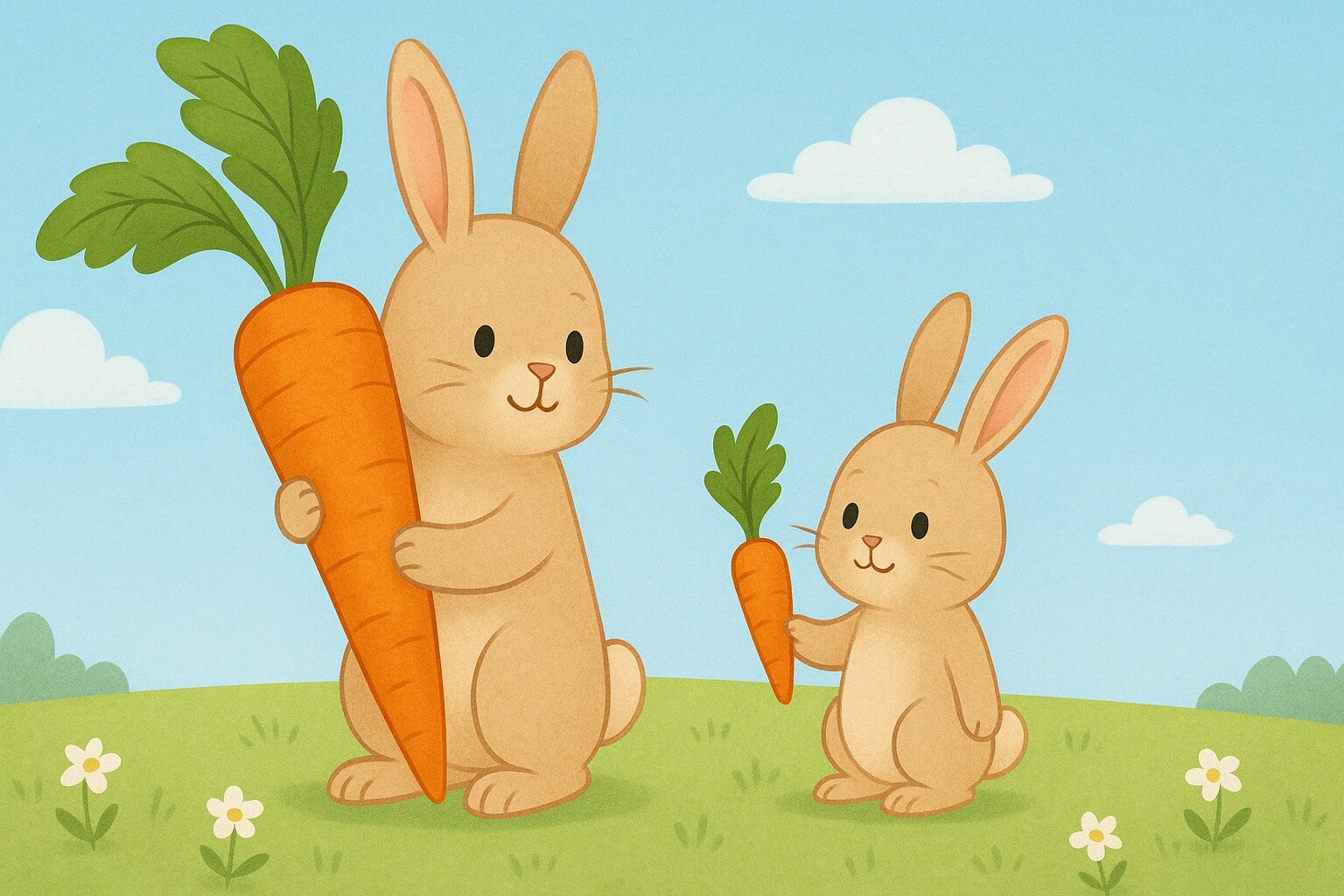
Learning Korean? Mastering adjectives is key to expressing opinions, describing people, and making daily conversations flow naturally. Whether you’re talking about the weather, your mood, or your favorite food, these Korean adjectives will help you sound confident and clear.
Below are 50 of the most commonly used Korean adjectives—each with its meaning and practical example sentence so you can start using them right away.
1–10: Describing Size & Shape
- 크다 (keu-da) – big
→ 이 가방은 커요.
This bag is big. - 작다 (jak-da) – small
→ 방이 작아요.
The room is small. - 길다 (gil-da) – long
→ 머리가 길어요.
Her hair is long. - 짧다 (jjalb-da) – short
→ 바지가 너무 짧아요.
The pants are too short. - 넓다 (neolb-da) – wide/spacious
→ 교실이 넓어요.
The classroom is spacious. - 좁다 (jop-da) – narrow
→ 이 골목은 너무 좁아요.
This alley is too narrow. - 무겁다 (mu-geop-da) – heavy
→ 이 상자는 무거워요.
This box is heavy. - 가볍다 (ga-byeop-da) – light
→ 가방이 생각보다 가벼워요.
The bag is lighter than I thought. - 두껍다 (du-kkeop-da) – thick
→ 책이 두꺼워요.
The book is thick. - 얇다 (yalb-da) – thin
→ 이 옷은 너무 얇아요.
These clothes are too thin.
11–20: Describing Temperature
- 춥다 (chup-da) – cold
→ 밖이 추워요.
It’s cold outside. - 덥다 (deop-da) – hot
→ 오늘 정말 더워요.
It’s really hot today. - 시원하다 (si-won-ha-da) – cool/refreshing
→ 에어컨 바람이 시원해요.
The air from the AC is refreshing. - 따뜻하다 (tta-tteut-ha-da) – warm
→ 이불이 따뜻해요.
The blanket is warm. - 차갑다 (cha-gap-da) – cold (to the touch)
→ 물이 차가워요.
The water is cold. - 뜨겁다 (tteu-geop-da) – hot (to the touch)
→ 커피가 뜨거워요.
The coffee is hot. - 건조하다 (geon-jo-ha-da) – dry
→ 날씨가 건조해요.
The weather is dry. - 습하다 (seup-ha-da) – humid
→ 오늘은 너무 습해요.
It’s very humid today. - 서늘하다 (seo-neul-ha-da) – chilly/cool
→ 아침 공기가 서늘해요.
The morning air is cool. - 포근하다 (po-geun-ha-da) – cozy/warm
→ 이 스웨터는 정말 포근해요.
This sweater feels really cozy.
21–30: Describing Feelings
- 행복하다 (haeng-bok-ha-da) – happy
→ 요즘 정말 행복해요.
I feel really happy these days. - 슬프다 (seul-peu-da) – sad
→ 그 영화는 슬퍼요.
That movie is sad. - 기쁘다 (gi-ppeu-da) – glad
→ 너를 만나서 기뻐요.
I’m glad to meet you. - 화나다 (hwa-na-da) – angry
→ 나는 지금 화났어요.
I’m angry right now. - 놀라다 (nol-la-da) – surprised
→ 정말 놀랐어요.
I was really surprised. - 심심하다 (sim-sim-ha-da) – bored
→ 집에 있으니까 심심해요.
I’m bored because I’m home. - 외롭다 (oe-rop-da) – lonely
→ 혼자라서 외로워요.
I feel lonely because I’m alone. - 편하다 (pyeon-ha-da) – comfortable
→ 이 의자가 정말 편해요.
This chair is really comfortable. - 불안하다 (bul-an-ha-da) – anxious
→ 시험 때문에 불안해요.
I’m anxious about the exam. - 자랑스럽다 (ja-rang-seu-reop-da) – proud
→ 네가 정말 자랑스러워요.
I’m proud of you.
31–40: Describing Personality
- 착하다 (chak-ha-da) – kind
→ 그는 정말 착해요.
He’s really kind. - 똑똑하다 (ttok-ttok-ha-da) – smart
→ 그녀는 똑똑해요.
She’s smart. - 재미있다 (jae-mi-it-da) – fun/interesting
→ 영화가 재미있어요.
The movie is entertaining. - 지루하다 (ji-ru-ha-da) – boring
→ 이 수업은 지루해요.
This class is boring. - 용감하다 (yong-gam-ha-da) – brave
→ 그는 용감해요.
He is brave. - 겁이 많다 (geop-i manh-da) – timid
→ 저는 겁이 많아요.
I get scared easily. - 성실하다 (seong-sil-ha-da) – diligent
→ 그는 아주 성실해요.
He’s very diligent. - 게으르다 (ge-eu-reu-da) – lazy
→ 나는 요즘 너무 게을러요.
I’ve been too lazy lately. - 친절하다 (chin-jeol-ha-da) – kind/friendly
→ 점원이 친절했어요.
The staff was kind. - 조용하다 (jo-yong-ha-da) – quiet
→ 그녀는 조용해요.
She’s quiet.
41–50: Everyday Descriptions
- 예쁘다 (yep-peu-da) – pretty
→ 그 꽃이 정말 예뻐요.
That flower is really pretty. - 잘생기다 (jal-saeng-gi-da) – handsome
→ 그는 잘생겼어요.
He’s handsome. - 맛있다 (mat-it-da) – delicious
→ 음식이 맛있어요.
The food is delicious. - 맛없다 (mat-eop-da) – not tasty
→ 이거 맛없어요.
This doesn’t taste good. - 바쁘다 (ba-ppeu-da) – busy
→ 오늘은 너무 바빠요.
I’m too busy today. - 한가하다 (han-ga-ha-da) – free (not busy)
→ 지금 한가해요.
I’m free right now. - 비싸다 (bi-ssa-da) – expensive
→ 이거 너무 비싸요.
This is too expensive. - 싸다 (ssa-da) – cheap
→ 가격이 싸요.
The price is cheap. - 새롭다 (sae-rop-da) – new
→ 그 아이디어는 정말 새로워요.
That idea is really new. - 오래되다 (o-rae-dwe-da) – old (things)
→ 이 집은 오래됐어요.
This house is old.
Tips for Using Korean Adjectives
- Korean adjectives act like verbs and are conjugated in similar ways.
- Most end in -다 in dictionary form but change depending on tense or politeness level.
→ e.g., 크다 → 커요, 춥다 → 추워요 - Practice with both the base form and the conjugated form so you can recognize them in real-life conversations.
Practice Time!
Try describing your day using 5 of these adjectives. Speak them out loud. Write them in your journal. The more you use them, the more natural they’ll become.



